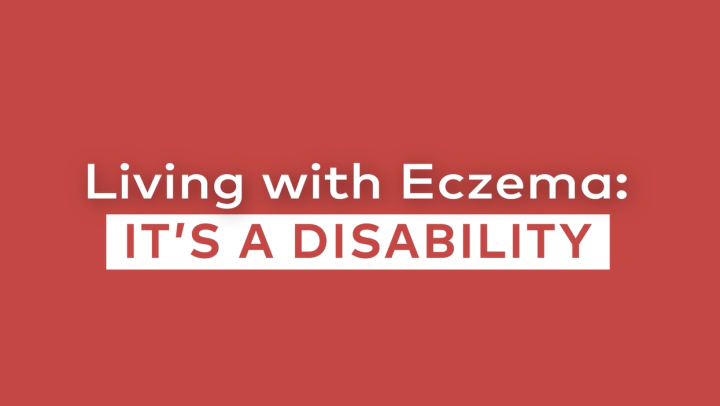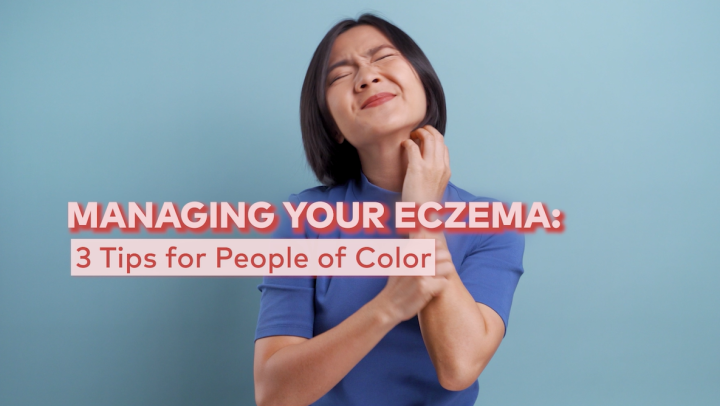
Eczema, also known as atopic dermatitis, is a frustrating skin disorder that causes red, itchy, dry skin patches to form. Eczema flare-ups often occur when the skin gets irritated, which is why it’s crucial to be smart about your skincare. One of your best defenses against eczema outbreaks is a soothing routine that includes careful cleansing, as well as moisturizing your skin at least twice a day. The key to success is finding the right combination of skincare products for eczema that won’t bother your sensitive skin.
Choosing the right skincare can be difficult for people with eczema because it can take several hours or even days for a skincare-triggered flare to occur. That’s why it’s essential that you read product labels to be sure the soap, shampoo, moisturizer, makeup, and sunscreen you are putting on your skin is the best option for your body and eczema symptoms.
What to Look For
A smart place to start your search for eczema-friendly skincare is the list of approved products provided by the National Eczema Association. Their NEA Seal of Acceptance™ program has a strict list of criteria that includes data about how the product affects eczema, along with thorough overviews of ingredients.Recommended products include shampoos, cleansers, moisturizers, laundry detergents, sleepwear, and hydrocortisone creams.
If you’re shopping without the NEA list, here are some guidelines to help with your skincare decisions.
- Choose ointments and creams over lotions. Ointments have the highest oil content so they are the best at sealing in moisture. Creams contain less oil, but they’re still good at moisturizing your skin, while not feeling too greasy. Lotions have the highest water content, so they’re not as oily, but they also provide less protection for your skin barrier.
- Look for shea butter, lanolin, and glycerin. These ingredients provide optimal moisture without irritation. They should be in the top three ingredients listed on the label.
- Don’t let hyaluronic acid scare you. Even though it’s an acid, this ingredient actually draws moisture from the air into your skin to hydrate dry, flaky patches.
- Opt for fragrance-free, instead of unscented products. Fragrance-free products truly have no fragrance at all and they won’t irritate your skin. Unscented products still include a fragrance, but it’s masked, so you can’t smell it.
- Try vitamin B3. If redness is a problem for you, use a serum or cream with vitamin B3, also called niacinamide. It works well applied under makeup to help even out your skin tone.
- Find products that fit your budget. You don’t have to spend a lot of money to get skincare products that can help your eczema management. Classics like petroleum jelly or at-home remedies, such as vegetable shortening, make excellent moisturizers.
Ingredients to Avoid
Just as important as what’s in your skincare product is what isn’t included. The ingredient lists can be long and confusing, so keep an eye out for these drying and irritating items to avoid.
- Avoid formaldehyde releasers. Some cosmetics use preservatives called
formaldehyde releasers Trusted Source PubMed Central Highly respected database from the National Institutes of Health Go to source that prevent bacteria growth but can cause skin irritation. Be on the lookout for these ingredients: imidazolidinyl urea; quaternium-15; 2-bromo-2-nitropropane-1,3-diol; DMDM hydantoin; and diazolidinyl urea.
- Beware of preservatives like methylparaben or butylparaben. These also keep your skincare products from growing bacteria. They aren’t as irritating as the formaldehyde releasers, but they can cause inflammation. Look for natural preservatives like nut or seed oils, unless you’re allergic.
- Skip the glycolic acid, salicylic acid, and retinol. Unlike hyaluronic acids, these acids are drying and can irritate skin with eczema.
- Ditch the dyes. In addition to fragrance-free, you should also look for dye-free products. These are often labeled as “clear.” Typically, natural or organic products are free of dyes and are a safe bet.
The Final Test
Whenever you start using a new skincare product or eczema treatment, it’s smart to do a patch test first to make sure your skin doesn’t react badly. Put a pea-sized amount of product on the inside of your wrist or elbow. Remember, it can take several hours or days for a reaction to occur,so avoid washing the area for a day or two. You can even cover it with a bandage to keep it from getting wet. Look for signs of redness, itchiness, or burning. If nothing happens, you’re all clear to use your new skincare product.



















